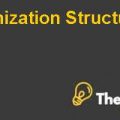Research Proposal Case Solution
introduction
The different segments of the businesses are generating a large amount of data and this data collectively is referred to as Big Data. Big Data is being generated by a diverse range of segments, which include healthcare, manufacturing, finance, business, research and development, education etc. We cannot take the advantage of this Big Data and its hidden information and knowledge because not all the traditional data mining algorithms work effectively on this data (Abbott, 2008). Therefore, there is a strong need for using and developing the innovative and effective technologies and tools, which are offered by Big Data. This is the reason due to which today industries like healthcare have developed data analytics tools to drive the business decisions and generate operational efficiencies.
There are a number of different challenges and critical issues, which must be resolved before embedding analytics in the healthcare organizations. One of the research studies had been conducted by Healthcare Analytics Symposium, which was held in Chicago and conducted by the Healthcare Center of Excellence in order to determine what were the main challenges faced by the healthcare organizations in implementing analytics at their healthcare organizations (Bennett, 2015).
Each of the individual participants had been asked to identify the top five analytics challenges, which were faced by their respective healthcare organization in implementing it. During the examination, all the challenges had been divided into 10 different categories. The identification of the challenges might not surprise anyone however, the prioritization of the challenges is quite unexpected (Bennett, 2015). These challenges include leadership challenges, data management, talent, integration, change management, costs and technology challenges.
The leadership category includes the most common terms such as, ‘need for buy in from the staff, lack of vision, lack of priority and also lack of direction.’ However, this also included, ‘teams not working together, soloed systems, disparate HER systems.’ However, all of these issues could be resolved through proper leadership. The second category which is data management included, ‘where does the data reside, quality of the data, lack of definition of key variables to study, lack of skills, hiring the right people, retaining talent, not enough qualified staff and the lack of data stewardship’ (Bertelsmann, 2008). Apart from these challenges, IT departments and the clinical departments must take a longer view to overcome the challenges, which would be faced by the healthcare organizations in adoption of the big data analytics (Hash mi, 2015). Three key challenges in this area are IT leadership, data puddles and episodic culture.
Apart from the above challenges, there are also many benefits of embedding data analytics in the healthcare organizations. The huge amount of the Big Data which is a varied data given an opportunity to the healthcare personnel and researchers to make use of the tools and techniques for unlocking the hidden answers. The implementation of the big data analytics techniques can prove to be beneficial by applying them on big data in a number of ways (Chattahoochee, 2007). For instance, with the help of big data analytics, a personalized treatment could be prepared by the healthcare organizations for each of their patients based on their lifestyle, allergies family history, weather, location, genomic data etc. When the researchers perform a detailed analysis of the genomic data then a relationship could be developed by them between a disease and the DNA.
The use of data analytics helps the hospitals to cut their costs and it helps them to indicate which patients would stay longer and which patients are going to be readmitted after their treatment. A number of different questions could be answered by the hospitals such as they can make use of the big data analytics to decide that whether a treatment would should positive results on a patient or not (Bennett, 2015). Moreover, the hospital authorities can take better-managed and informed decisions. This research study emphasizes on the benefits and challenges faced by healthcare organizations in embedding data analytics in organizations. In the future, with the rapid advancements in the big data processes we expect the healthcare costs to decline drastically and yield more benefits.
Research Proposal Harvard Case Solution & Analysis
problem statement
Overview
Healthcare organizations today are beginning to make a greater use of big data analytics in their organizations. However, there are a number of challenges, which are faced by them. The problem of this research study is to identify all the benefits and key challenges, which are faced by the healthcare organizations in embedding data analytics in their organizational IT systems. The identification of these problems would help us to determine the future directions and specific recommendations for the healthcare organizations............
This is just a sample partial case solution. Please place the order on the website to order your own originally done case solution.













